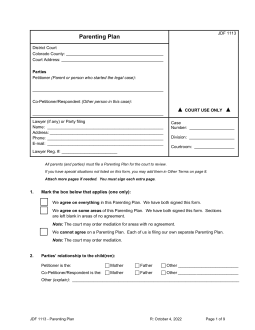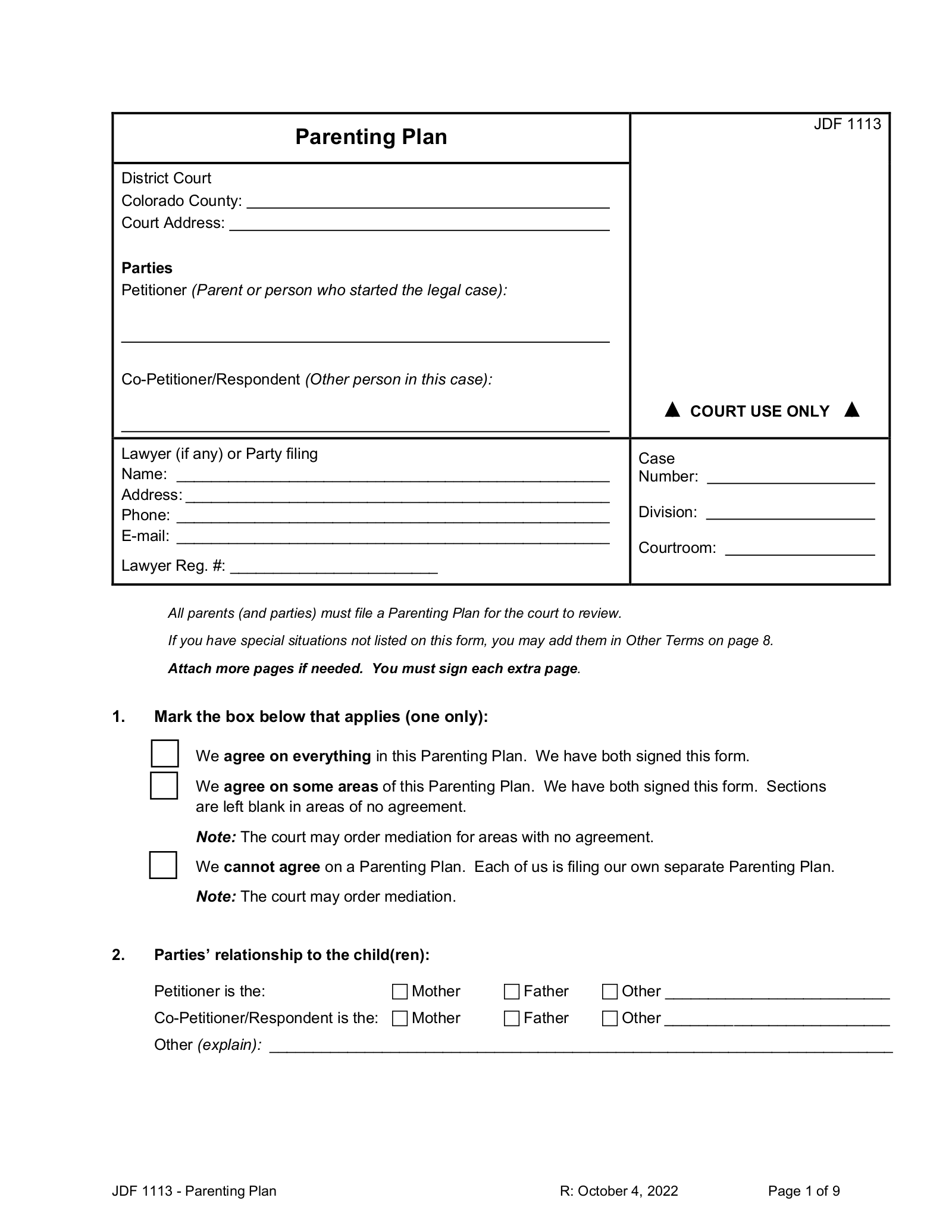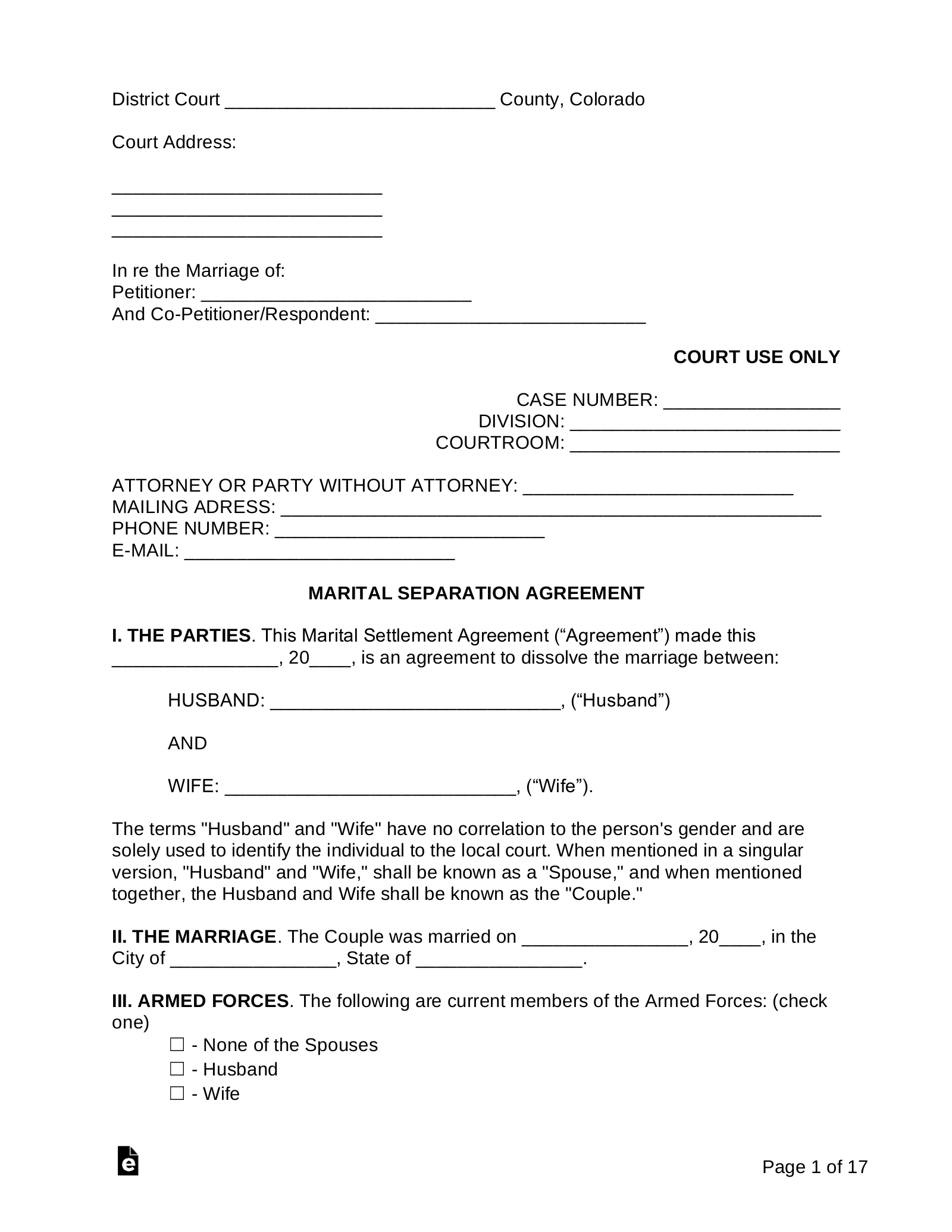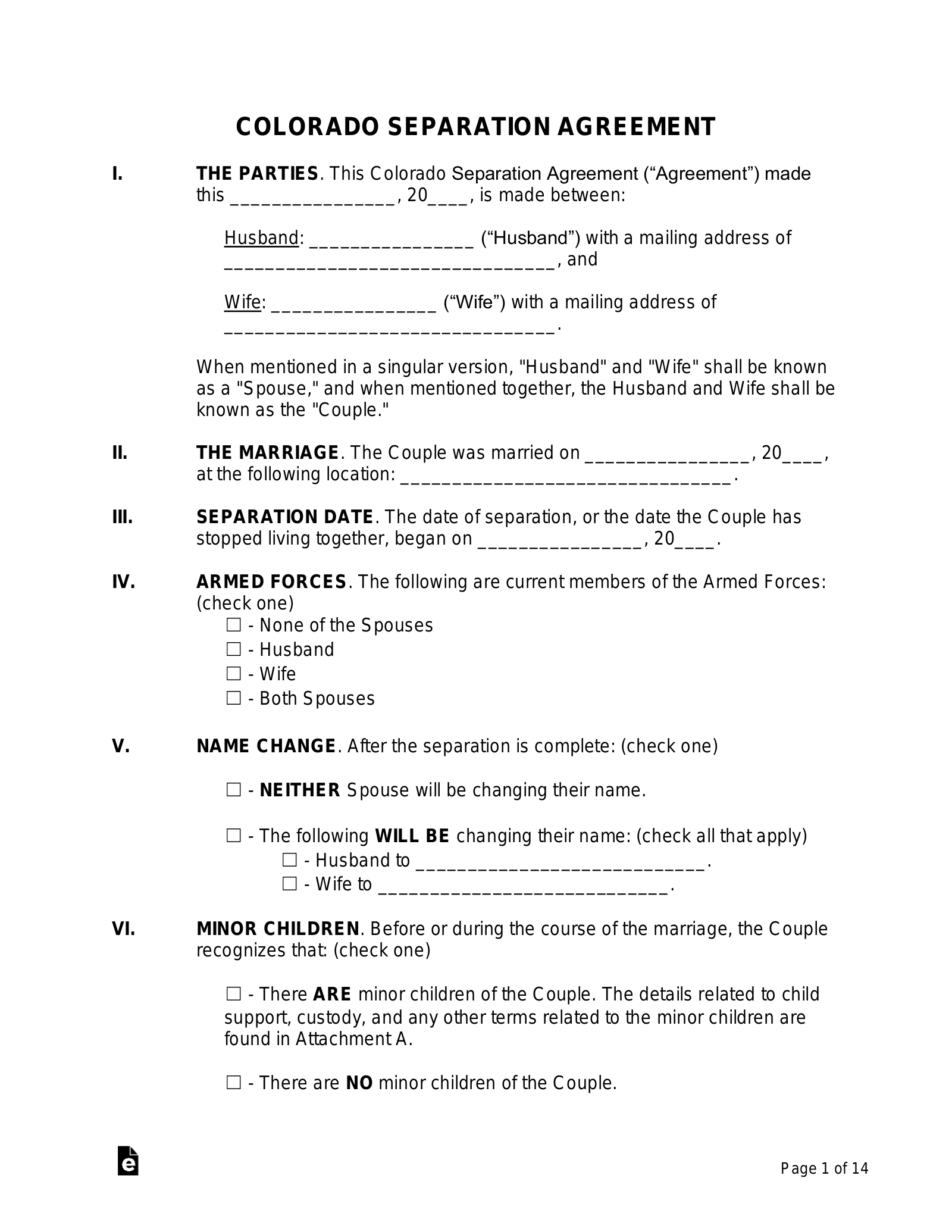Updated December 20, 2023
A Colorado custody agreement is a document that outlines how parents will share the rights and responsibilities of child-rearing upon the dissolution of their relationship. The law prioritizes arrangements that encourage love, affection, and contact between children and their parents. In custody-related matters, courts allocate parenting time and decision-making powers in accordance with the child’s best interest.
Child Custody Factors
- The child’s wishes
- The relationship between the child and each parent, as well as with siblings
- Any reports related to domestic violence submitted to the court
- The child’s adjustment to home, school, and community
- Each parent’s mental health
- The ability of the parties to encourage the sharing of love, affection, and contact between the child and the other party
- Whether each parent’s involvement with the child reflects a system of values, time commitment, and mutual support
- The physical location of each party
- The ability of each party to place the needs of the child ahead of their own needs
Table of Contents |
How to File for Custody in Colorado
Colorado courts use the term “parental responsibilities” instead of “custody.” These types of cases are generally referred to as APR, or Allocation of Parental Responsibilities.
Custody is determined during divorce proceedings; unmarried parents must open an APR case. It’s worth noting that an APR case can only be opened if the child has lived in Colorado for at least the past 182 days.[1]
1. Agree on a Parenting Plan

Parents must complete Form JDF 1113, which covers such matters as parenting decisions, school schedules, summer schedules, holiday schedules, travel, and child support. This form asks both parties to indicate whether they agree on the whole plan, parts of the plan, or do not agree at all.
If an agreement is achieved, the court will simply hand down an order. Should the parties not reach an agreement, the court will convene a contested hearing and create a parenting plan on their behalf based on what’s best for the child.
2. Calculate Child Support
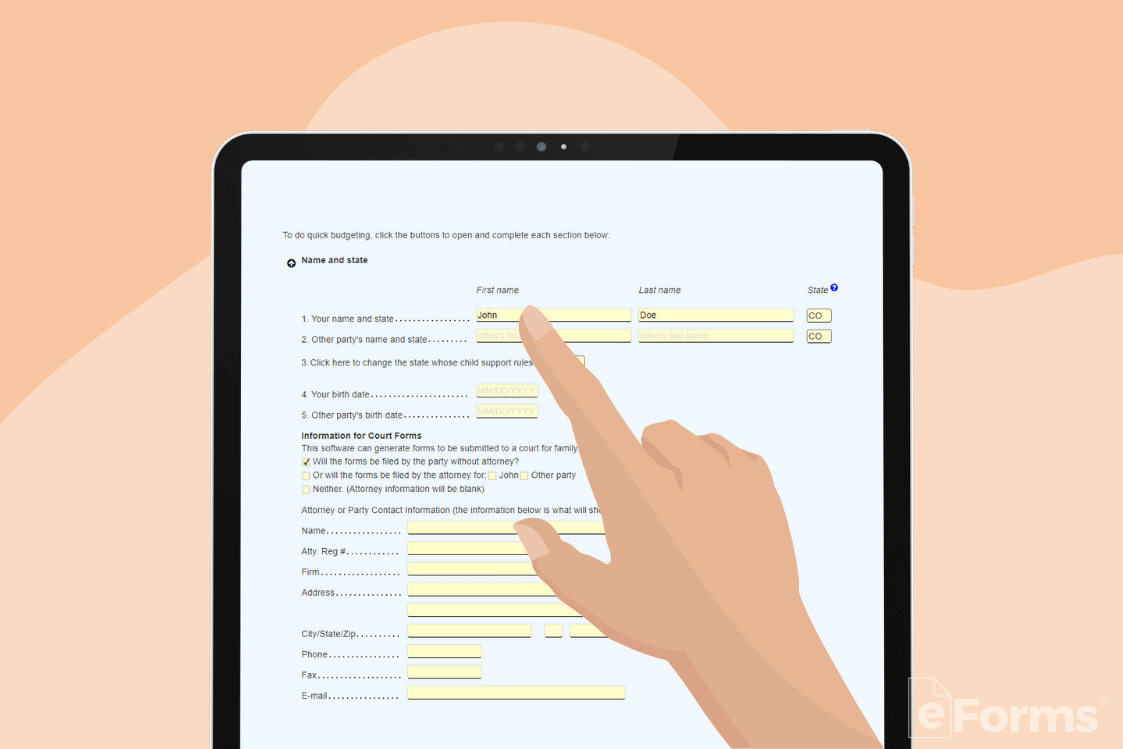
Colorado courts calculate child support based on a formula that considers each parent’s gross income, the number of overnights the child spends with each parent, expenses, and more. A child support calculator can be used to estimate the amount that the court will order.
3. File Custody Paperwork
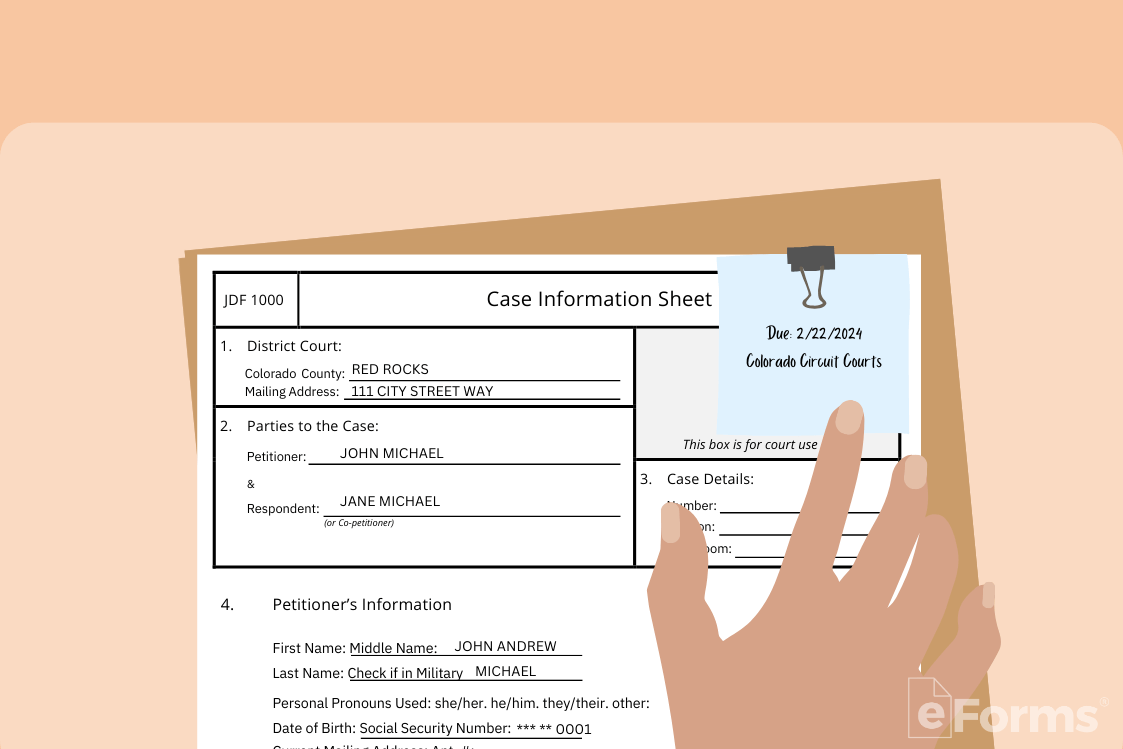
If the parties are filing jointly, they should complete the following:
These should be filed with the district court in the county where the child lives, and each parent should retain copies of the signed forms. The filing fee for the petition is $222.
If only one party is filing, then both of these forms must be completed in addition to JDF 1414, or a Summons. All three forms must be filed with the court and also served on the other party by a professional process server, the sheriff, or another disinterested person who isn’t connected to the case. The court requires proof of service, or a notarized return of service form (JDF 1414(b)) attesting that the forms were delivered properly.
4. Attend Initial Status Conference

Within 42 days of filing, the court will set a date for the ISC, or Initial Status Conference. This conference is mandatory for both parties to attend.[2]
Before the conference, each party should complete:
- JDF 1125 – Mandatory Disclosures
- JDF 1111 – Sworn Financial Statement
- JDF 1104 – Certificate of Compliance
5. Attend Hearing
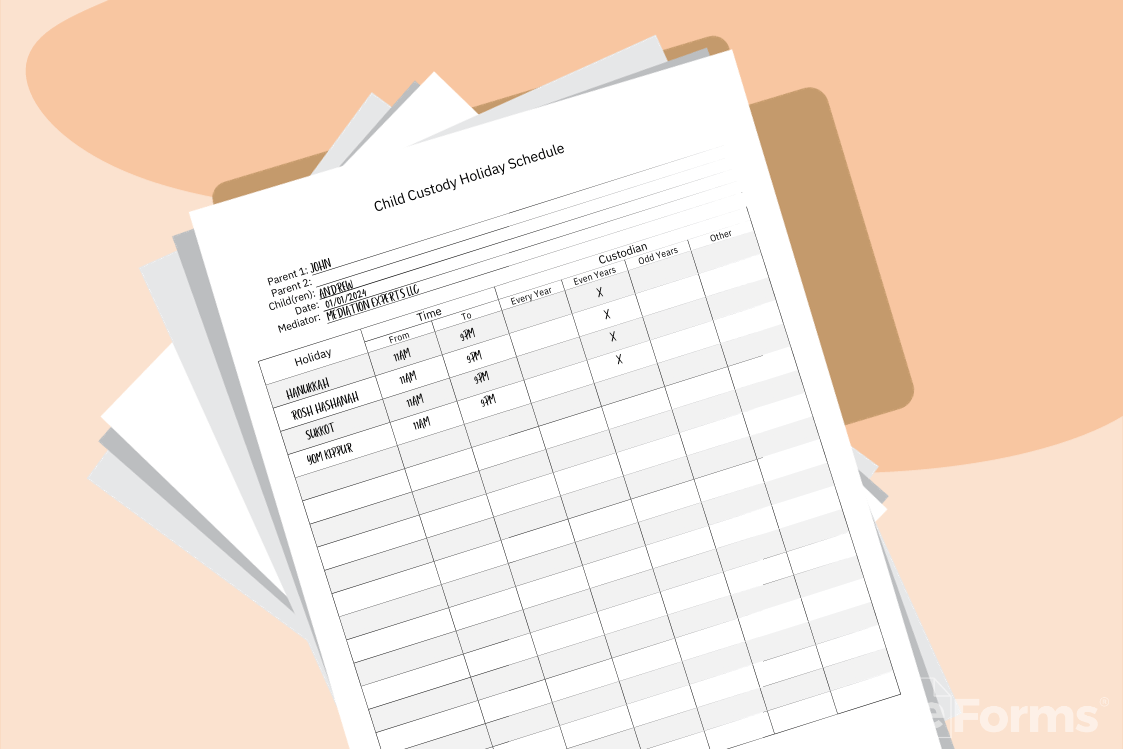
In the absence of consensus, both parents will be scheduled to appear for a court hearing.
Custody Laws
- Child’s Preference: The court considers a child’s preferences related to parenting schedule if the child is “sufficiently mature” (§ 14-10-124)
- Uniform Child Custody Jurisdiction and Enforcement Act: § 14-13-101 – 14-13-403
- Visitation: § 14-10-29
Related Forms

